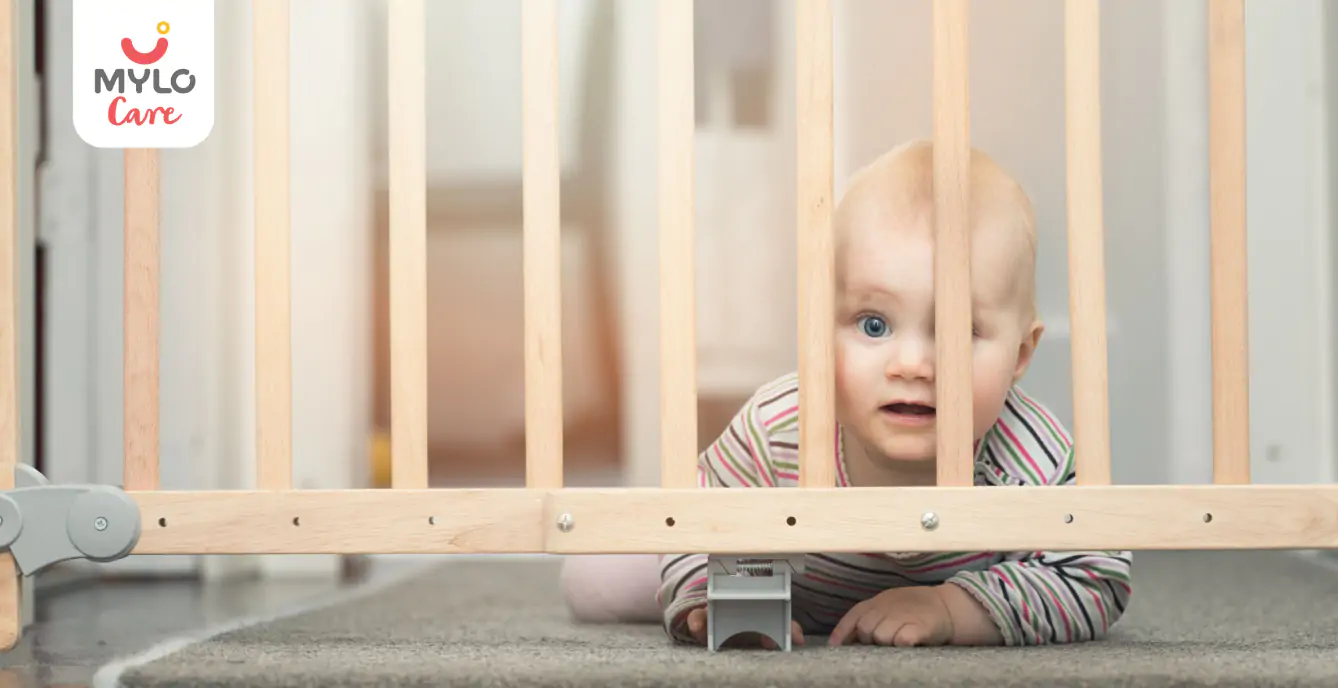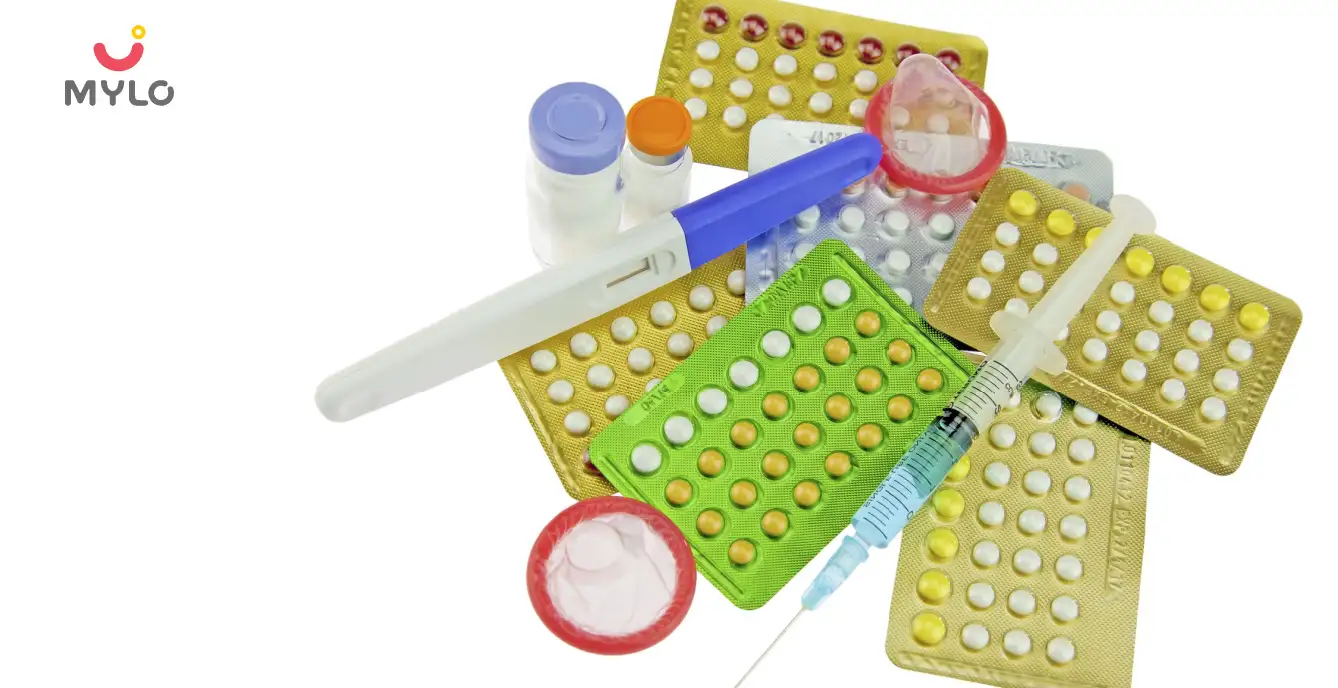- Home

- Physical Growth

- How to Increase the Head Control and Neck Strength of Your Baby?
In this Article
Physical Growth
How to Increase the Head Control and Neck Strength of Your Baby?
Updated on 17 July 2023
When you are still learning to hold your newborn baby in your arms, you always get instructions from the elders of the house to support the baby’s neck with one arm. This happens because the newborn baby’s muscles are not fully developed. Newborn babies develop strong and head and neck muscles only gradually and you can help your baby strengthen his/her neck muscles with simple exercises. Stages of neck development and head control vary in children as some kids may achieve that sooner while others take a little longer.
The muscles in the neck are at their weakest point when the baby is born and it’s highly important to support the neck of your newborn baby every time you lift him/her. After a month you can observe the changes in your baby because he/she might make a few attempts to either lift the head or turn it in different directions while lying on the tummy. Gradually the development of bones and muscles increases and that helps the child to hold their head upright and follow their body when they sit, stand, crawl or lie down.
When do babies develop head control?
Your baby will establish head control gradually as their muscles develop. Although in the beginning, it’ll be shaky however if you’re practising some exercises and regularly doing massages then by 5-6 months, you’ll notice that the baby can have steadier control over his/her head. When your baby will learn to hold the head up, you’ll notice that the baby has started sitting up, crawling, and can roll over. Your child needs to reach development milestones in their own time because by that time you’ll start feeding solids to your baby also. You must make sure that your baby is sitting on the high chair when you are feeding solids to your little one.
How to increase your baby's head control and neck strength?
Here are some exercises that can help in strengthening your infant’s neck muscles and head control:
1. Tummy time
One of the best and simplest ways to strengthen the neck muscles of your baby is to place your baby on his/her tummy. You can start practising this on your newborn baby by placing your baby belly down on your chest or lap for a few minutes (approximately 2-3 times per day). You can gradually increase the time until you reach 20 minutes per session and just make sure you never leave your baby unattended. If your baby gets cranky during tummy time you can prop it up by placing an extra blanket or padding to provide comfort to your little one.
Also read: Tummy Time: Is It Really Necessary for Your Baby?
2. Allow the baby to observe
When your baby is sitting on your lap let him/her rest their back against you and simply allow them to watch the world go by.
3. Let him/her reach out
Invest in some colourful toys that have light and sound because they can keep your baby engaged for hours. You can place the toy slightly far from the reach of the baby and once the baby notices its colourful lights and rhythmic sounds he/she will try to reach out for the toys and that will strengthen the neck muscles and the head control.
4. Stretching the neck
Some babies are born with a large head or their neck muscles are quite weak and this is not an abnormality. It's just that newborn babies can face difficulty in turning around and some external push is recommended under the supervision of an expert. If you notice that your child is sleeping with his/her head in one direction then you must gently lift the head and change the direction. Don’t try anything with force as that can be life-threatening.
You may also like: Top 5 Benefits of massaging your Little one every day
Conclusion
If you are working on some simple sitting-up exercises at home with your baby then your child will sooner learn to sit up straight and will have good body control. You must gently guide your baby in the entire process of strengthening exercises as that will help your baby reach other milestones of development easily. Although rare, if you notice a Head Lag in your baby then you must immediately consult a paediatrician. It is a situation where the baby’s neck muscles are too weak and unable to support the head (around 3-4 months after birth) and this happens due to many reasons for instance- low birth weight, cerebral palsy, and preterm birth.
References
1. Osagie, I. E., & Givler, D. N. (2021). Infant Head Lag. PubMed; StatPearls Publishing. https://www.ncbi.nlm.nih.gov/books/NBK567782/
2. Shin, H. I., & Shin, H.-I. (2020). Delayed Development of Head Control and Rolling in Infants With Tracheostomies. Frontiers in Pediatrics, 8. https://doi.org/10.3389/fped.2020.571573



Written by
sakshi prasad
Get baby's diet chart, and growth tips

Related Articles
RECENTLY PUBLISHED ARTICLES
our most recent articles

Exploring the Senses: 9 Incredible Benefits of Sensory Play for Your Child's Development

Childproofing
The Ultimate Guide to Childproofing Your Home

Books
Start Their Love for Reading Early: The Best Books for Baby's First Library

Illnesses & Infections
CMPA (Cow's Milk Protein Allergy): Identifying Symptoms and Understanding Treatment

Contraceptive
Birth Control Options While Breastfeeding: Balancing Parenthood and Contraception

Periods
Period During Breastfeeding What Every New Mother Should Know
- Role of Stories and Rhymes in Your Baby’s Brain Development
- Intracytoplasmic Sperm Injection (ICSI) How It Can Help Treat Male Infertility
- Baby Sleeping While Breastfeeding: Understanding the Causes and Solutions
- Lump in Breast During Breastfeeding How to Identify, Treat, and Prevent Lump Formation
- Understanding Down Syndrome: A Comprehensive Guide for Parents
- No Breast Milk After Delivery: What to Do & What are the Factors Responsible
- Lactation Failure: A Comprehensive Guide to Understanding the Causes and Solutions
- Breast Pain During Pregnancy: What to Expect and How to Find Relief
- Baby Spit Up: The Ultimate Guide to Causes, Prevention, and Management
- Unexplained Infertility: Breaking Down the Factors and Finding Solutions
- Mulethi: Unraveling the Therapeutic Potential of Licorice Root for Your Overall Health
- 5 Steps to a Healthy Lifestyle: The Blueprint for Your Wellness Journey
- Chandraprabha Vati: How This Potent Ayurvedic Formulation Can Boost Your Health
- Trichomoniasis: Meaning, Symptoms, Causes and Risks


AWARDS AND RECOGNITION
Mylo wins Forbes D2C Disruptor award
Mylo wins The Economic Times Promising Brands 2022
AS SEEN IN
















At Mylo, we help young parents raise happy and healthy families with our innovative new-age solutions:
- Mylo Care: Effective and science-backed personal care and wellness solutions for a joyful you.
- Mylo Baby: Science-backed, gentle and effective personal care & hygiene range for your little one.
- Mylo Community: Trusted and empathetic community of 10mn+ parents and experts.
Product Categories
baby carrier | baby soap | baby wipes | stretch marks cream | baby cream | baby shampoo | baby massage oil | baby hair oil | stretch marks oil | baby body wash | baby powder | baby lotion | diaper rash cream | newborn diapers | teether | baby kajal | baby diapers | cloth diapers |









